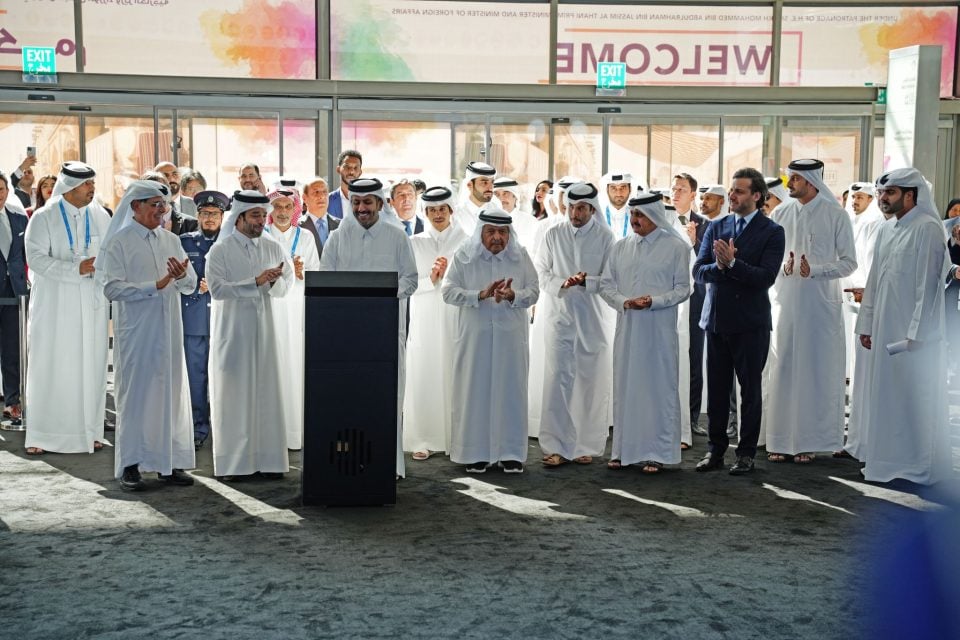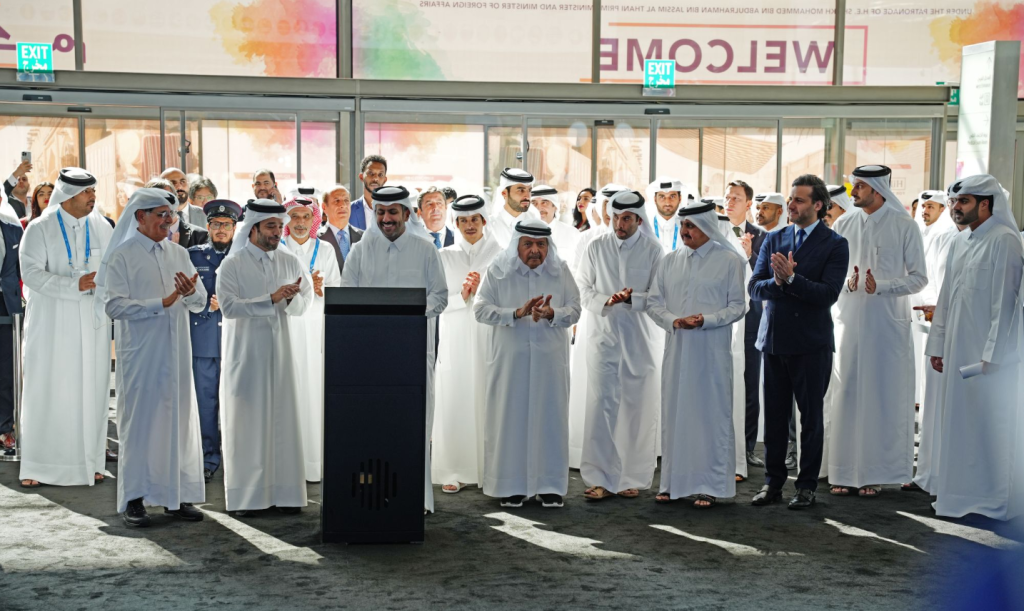
The 3rd installment of the annual Qatar Travel Mart kicked off on Monday 25 November, featuring more than 300 exhibitors from 60 countries.
Themed Discover Places, People and Cultures, this year’s expo sprawls across 15,000sqm of floorspace, making it twice the size of last year. This is testamant to Qatar’s growing influence in the global travel and tourism industry.
The event, organised by NeXTfairs and held under the patronage of Prime Minister and Minister of Foreign Affairs, Sheikh Mohammed bin Abdulrahman Al Thani, is expected to welcome 12,000 visitors over the three-day event ending today.
Commenting on the aim of QTM and its initiatives, Rawad Sleem, Co-founder and General Manager of NeXTfairs, said the event is shows off Qatar’s unique blend of rich culture, hospitality, and the different thriving sectors including “business, sports, medical, leisure, and halal tourism.”
“We are creating an environment where international tourism professionals and investors can connect directly with local partners, establishing partnerships and collaborations that will boost Qatar’s tourism industry and open up new business and investment opportunies for those seeking to do business in the country,” he said. “Our goal is to help positioon Qatar as a global business and tourism destination.”
Key takeaways
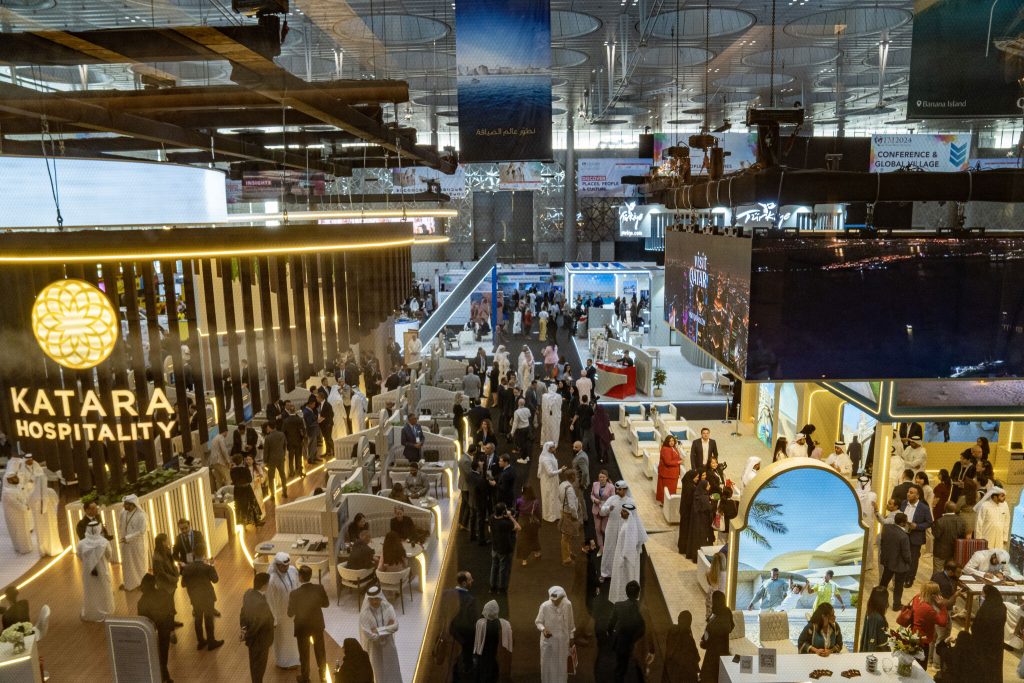
B2B App
New to this year’s QTM is a B2B App offering attendees easy access to exhibitors, conference schedules, and personalised meeting planners. Available on both the iOS and Android, the App streamlines navigation and maximizes networking opportunities to foster growth.
Daily themes
Each day, attendees heard from industry leaders and experts on various topics affecting the travel and tourism ladnscape today, that directly affect and shape that of tomorrow.
Day 1 was about “Meaningful Experiences,” where discussions were focused on shaping and driving experiential tourism while protecting and preserving the local cultural heritage.
Culinary tourism was also touched on where industry experts discussed the important role gastronomy plays in the region’s tourism industry. Let’s face it, good foodie experienes can sometimes make or break a holiday, so it’s important for countries to up their cuisine game.
Discussions around strategies on maintaining year-round visitors were also had, encouraging tourism players in the country and region to be even more creative and innovative in order to keep visitors interested and engaged throughout all seasons.
Also read: AI meets customer service: tech with a personal touch
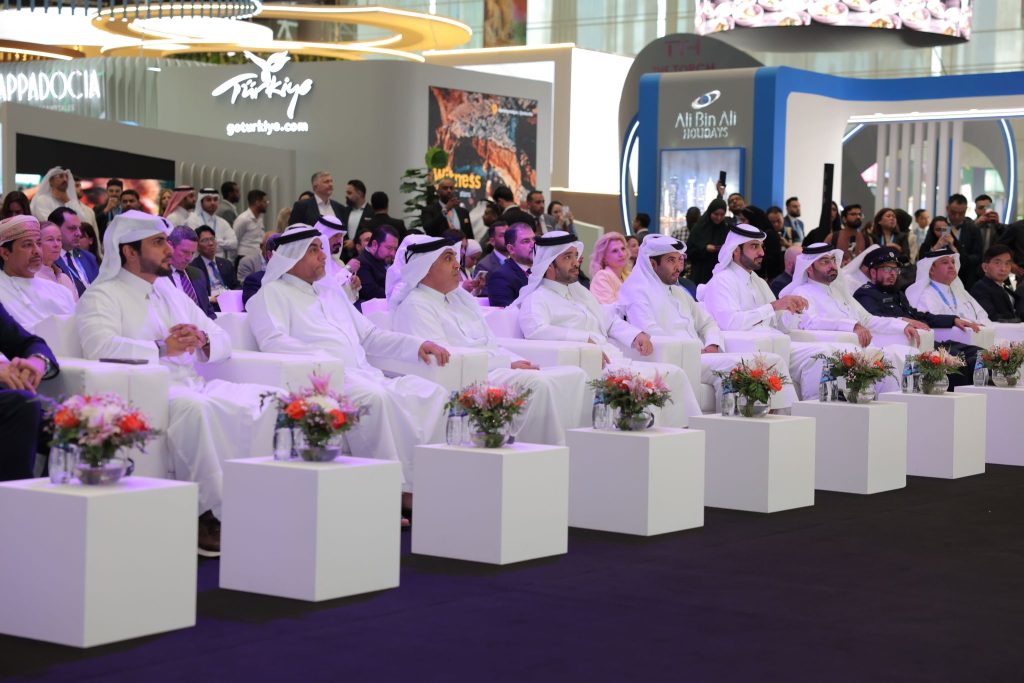
Day 2 focused on the “Future of Travel,” where discussions were around the various educational approaches to developing future-ready skills and continuously upskilling those already in the workforce.
A highlight topic was on digital and smart tourism enhancing the traveller experience, and the ways in which tourism providers can not only improve and streamline their processes, but at the same time, provide travellers with a more seamless and memorable experience from the research stages right through to planning, booking and discovering experiences on the ground.
Another hot topic was sustainable, responsible and community-based tourism, alongside the impacts climate change on cultural heritage assets. Experts discussed different ways in which tourism providers can further involve local businesses and communities to further enhance the country’s authentic tourism appeal, while preserving local traditions.
Also read: How MENA’s travel industry is embracing sustainability
Day 3 (today) will conclude with discussions on how sports and health tourism are increasingly shaping the way people travel, the expectations of such travellers, the trends, and how industry players can prepare, preempt and deliver to the growing niches.
Also read: FIFA fever to hit Qatar again: the good, the bad and the unexpected
Qatar’s ambitious vision
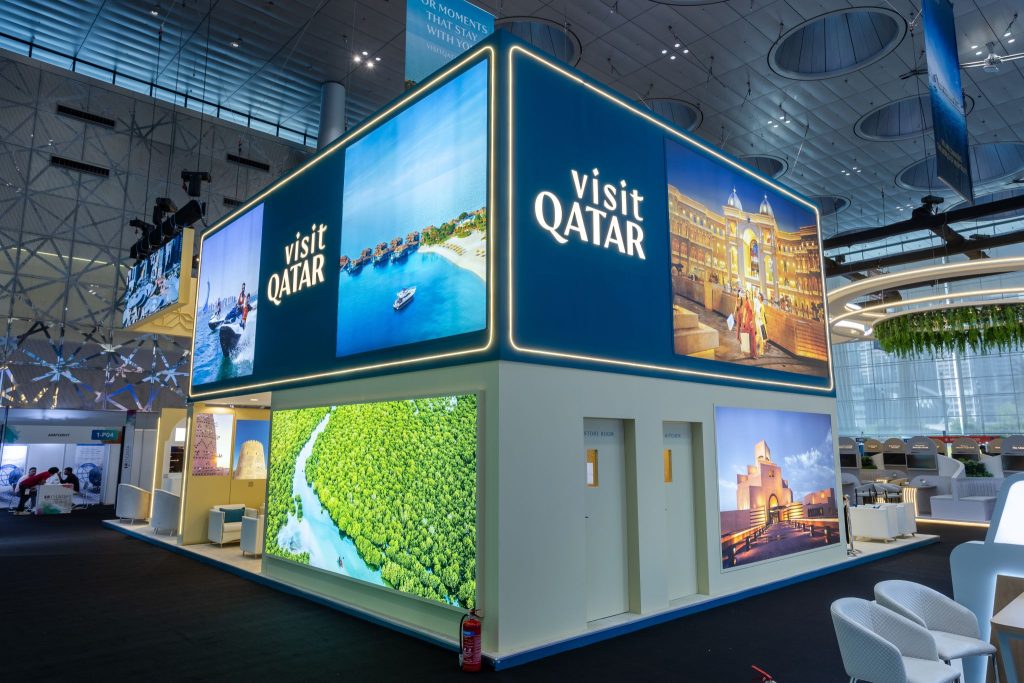
Qatar’s tourism sector grew by a whopping 147% in the last five years, with 2022 spiking the highest, much thanks to the FIFA World Cup.
When it comes ot projected growth, according to Statista:
- It is forecasted that the Hotels market in Qatar will witness a substantial surge in revenue, with projections indicating a rise to US$526.20m in 2024.
- Furthermore, it is expected that this upward trend will continue with an annual growth rate (CAGR 2024-2029) of 2.97%, resulting in a projected market volume of US$609.20m by 2029.
- Additionally, the number of users in the Hotels market is expected to reach 1.23m users by 2029, with a user penetration rate of 34.3% in 2024, rising to 43.2% by 2029.
- The average revenue per user (ARPU) is expected to be US$560.70.
- It is worth mentioning that in the Hotels market sector, 87% of total revenue is expected to be generated through online sales by 2029.
- Moreover, in terms of global comparison, United States is expected to generate the most revenue in the Hotels market, with a projected revenue of US$111bn in 2024.
- Qatar’s hotel market is evolving rapidly with a focus on luxury, innovation and sustainability to attract high-end tourists.
Given the positive trajectory, the country aims to invest US$45 billion to further expand its tourism sector by 2030. Aiming to welcome 7 million tourists by 2030, Qatar’s hospitality sector is projected to surge by 89% in 2025, adding over 56,000 hotel rooms which is likely to see US$7 billion injected into new hotel development – as per QTM’s Day 1 showdaily report.


